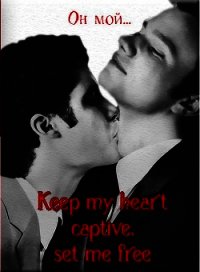New Rose hotel - Gibson William (читать книги полные .TXT) 📗
She was off to some Rhinetand spa, and Hiroshi was in Vienna for a conference. When Maas security flowed in to scan the hotel, you were out of sight. Hiroshi arrived an hour later, alone.
Imagine an alien, Fox once said, who's come here to identify the planet's dominant form of intelligence. The alien has a look, then chooses. What do you think he picks? I probably shrugged. The zaibatsus, Fox said, the multinationals. The blood of a zaibatsu is information, not people. The structure is independent of the individual lives that comprise it. Corporation as life form. Not the Edge lecture again, I said.
Maas isn't like that, he said, ignoring me.
Maas was small, fast, ruthless. An atavism. Maas was all Edge.
I remember Fox talking about the nature of Hiroshi's Edge. Radioactive nucleases, monoclonal antibodies, something to do with the linkage of proteins, nucleotides … Hot, Fox called them, hot proteins. High-speed links. He said Hiroshi was a freak, the kind who shatters paradigms, inverts a whole field of science, brings on the violent revision of an entire body of knowledge. Basic patents, he said, his throat tight with the sheer wealth of it, with the high, thin smell of tax-free millions that clung to those two words. Hosaka wanted Hiroshi, but his Edge was radical enough to worry them. They wanted him to work in isolation. I went to Marrakech, to the old city, the Medina. I found a heroin lab that had been converted to the extraction of pheromones. I bought it, with Hosaka's money.
I walked the marketplace at Djemaa-el-Fna with a sweating Portuguese businessman, discussing fluorescent lighting and the installation of ventilated specimen cages. Beyond the city walls, the high Atlas. Djemaa-el-Fna was thick with jugglers, dancers, storytellers, small boys turning lathes with their feet, legless beggars with wooden bowls under animated holograms advertising French software.
We strolled past bales of raw wool and plastic tubs of Chinese microchips.
I hinted that my employers planned to manufacture synthetic beta-endorphin.
Always try to give them something they understand.
Sandii, I remember you in Harajuka, sometimes. Close my eyes in this coffin and I can see you there — all the glitter, crystal maze of the boutiques, the smell of new clothes. I see your cheekbones ride past chrome racks of Paris leathers. Sometimes I hold your hand.
We thought we'd found you, Sandii, but really you'd found us. Now I know you were looking for us, or for someone like us. Fox was delighted, grinning over our find: such a pretty new tool, bright as any scalpel. Just the thing to help us sever a stubborn Edge, like Hiroshi's, from the jealous parent-body of Maas Biolabs. You must have been searching a long time, looking for a way out, all those nights down Shinjuku. Nights you carefully cut from the scattered deck of your past.
My own past had gone down years before, lost with all hands, no trace. I understood Fox's late-night habit of emptying his wallet, shuffling through his identification. He'd lay the pieces out in different patterns, rearrange them, wait for a picture to form. I knew what he was looking for. You did the same thing with your childhoods. In New Rose, tonight, I choose from your deck of pasts.
I choose the original version, the famous Yokohama hotelroom text, recited to me that first night in bed. I choose the disgraced father, Hosaka executive. Hosaka. How perfect. And the Dutch mother, the summers in Amsterdam, the soft blanket of pigeons in the Dam Square afternoon.
I came in out of the heat of Marrakech into Hilton air conditioning. Wet shirt clinging cold to the small of my back while I read the message you'd relayed through Fox. You were in all the way; Hiroshi would leave his wife. It wasn't difficult for you to communicate with us, even through the clear, tight film of Maas security; you'd shown Hiroshi the perfect little place for coffee and kipferl. Your favorite waiter was white-haired, kindly, walked with a limp, and worked for us. You left your messages under the linen napkin.
All day today I watched a small helicopter cut a tight grid above this country of mine, the land of my exile, the New Rose Hotel. Watched from my hatch as its patient shadow crossed the grease-stained concrete. Close. Very close.
I left Marrakech for Berlin. I met with a Welshman in a bar and began to arrange for Hiroshi's disappearance. It would be a complicated business, intricate as the brass gears and sliding mirrors of Victorian stage magic, but the desired effect was simple enough. Hiroshi would step behind a hydrogen-cell Mercedes and vanish. The dozen Maas agents who followed him constantly would swarm around the van like ants; the Maas security apparatus would harden around his point of departure like epoxy.
They know how to do business promptly in Berlin. I wits even able to arrange a last night with you. I kept it secret from Fox; he might not have approved. Now I've forgotten the town's name. I knew it for an hour on the autobahn, under a gray Rhenish sky, and forgot it in your arms.
The rain began, sometime toward morning. Our room had a single window, high and narrow, where I stood and watched the rain fur the river with silver needles. Sound of your breathing. The river flowed beneath low, stone arches. The street was empty. Europe was a dead museum.
I'd already booked your flight to Marrakech, out of Orly, under your newest name. You'd be on your way when I pulled the final string and dropped Hiroshi out of sight.
You'd left your purse on the dark old bureau. While you slept I went through your things, removed anything that might clash with the new cover I'd bought for you in Berlin. I took the Chinese .22, your microcomputer, and your bank chip. I took a new passport, Dutch, from my bag, a Swiss bank chip in the same name, and tucked them into your purse.
My hand brushed something flat, I drew it out, held the thing, a diskette. No labels.
It lay there in the palm of my hand, all that death. Latent, coded, waiting.
I stood there and watched you breathe, watched your breasts rise and fall. Saw your lips slightly parted, and in the jut and fullness of your lower lip, the faintest suggestion of bruising.
I put the diskette back into your purse. When I lay down beside you, you rolled against me, waking, on your breath all the electric night of a new Asia, the future rising in you like a bright fluid, washing me of everything but the moment. That was your magic, that you lived outside of history, all now.
And you knew how to take me there. For the last time, you took me.
While I was shaving, I heard you empty your makeup into my bag. I'm Dutch now, you said, I'll want a new look.
Dr Hiroshi Yomiuri went missing in Vienna, in a quiet street off Singerstrasse, two blocks from his wife's favorite hotel. On a clear afternoon in October, in the presence of a dozen expert witnesses, Dr Yomiuri vanished.
He stepped through a looking glass. Somewhere, offstage, the oiled play of Victorian clockwork. I sat in a hotel room in Geneva and took the Welshman's call. It was done, Hiroshi down my rabbit hole and headed for Marrakech. I poured myself a drink and thought about your legs.
Fox and I met in Narita a day later, in a sushi bar in the. JAL terminal.
He'd just stepped off an Air Maroc jet, exhausted and triumphant.
Loves it there, he said, meaning Hiroshi. Loves her, he said, meaning you.
I smiled. You'd promised to meet me in Shinjuku in a month.
Your cheap little gun in the New Rose Hotel. Ale chrome is starting to peel. The machining is clumsy, blurry Chinese stamped into rough steel. The grips are red plastic, molded with a dragon on either side. Like a child's toy.
Fox ate sushi in the JAL terminal, high on what we'd done. The shoulder had been giving him trouble, but he said he didn't care. Money now for better doctors. Money now for everything. Somehow it didn't seem very important to me, the money we'd gotten from Hosaka. Not that I doubted our new wealth, but that last night with you had left me convinced that it all came to us naturally, in the new order of things, as a function of who and what we were.



